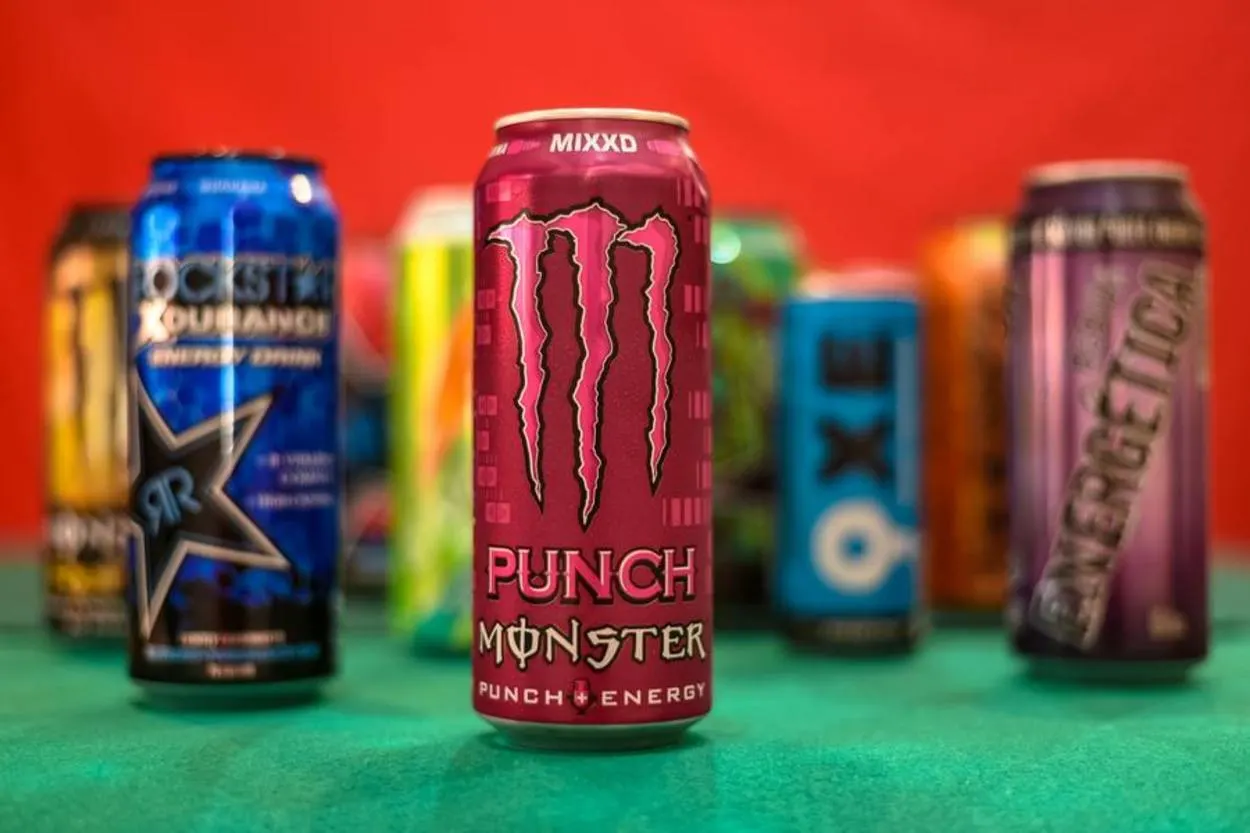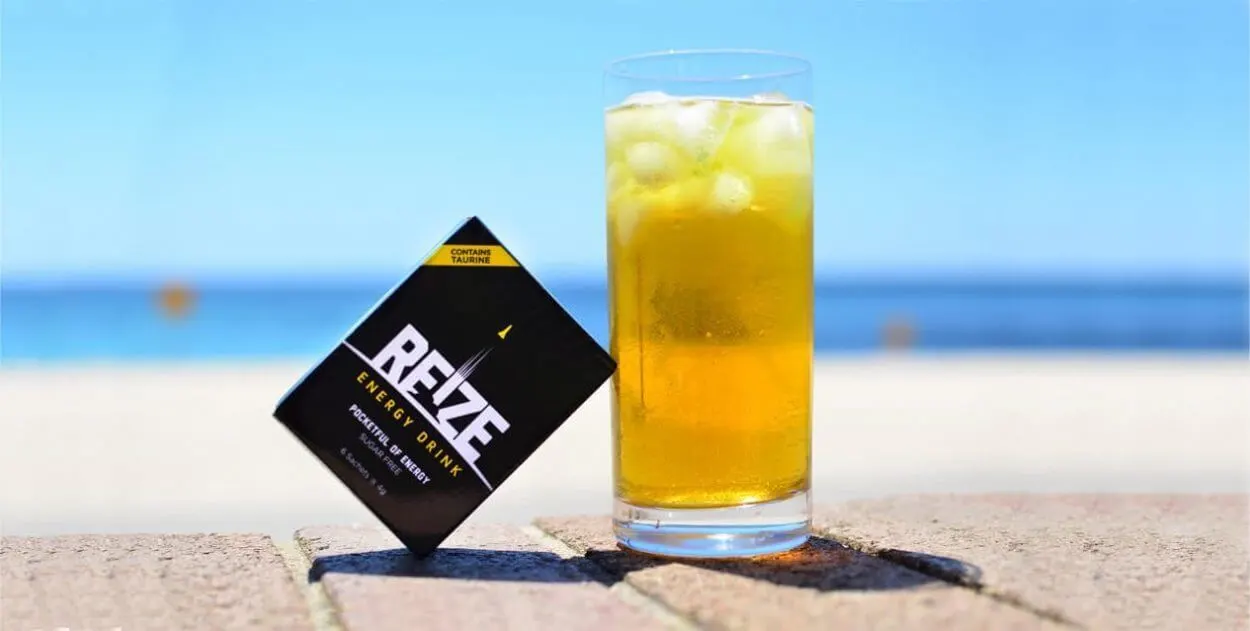Let’s get to the point: children and teenagers are NOT recommended to take energy drinks. This is because caffeine is a predominant ingredient in most brands and it can cause side effects for those still underaged.
While caffeine is a popular and common stimulant, excessive amounts can cause harmful side effects like overdose, headaches, irregular heartbeat, and anxiety. Even healthy adults are not exempt from caffeine’s effects, imagine what it can do to young children whose bodies are still developing.
This is why children and teenagers are advised to stay away from not just energy drinks, but caffeine in general. This includes beloved treats like chocolate and sodas, so it’s best to watch what you eat!
So if you’re still under 16, I’d recommend that you avoid energy drinks for now. But no harm in learning more about energy drinks and their side effects, right?
In this article, I’ll be discussing the basics of energy drinks and why it’s not recommended for those under 16. I’ve also compiled a list of my energy drink recommendations (for when you’re older, of course!).
Let’s get to it!
Energy Drinks Common Ingredients
You can find most, if not all, of the following elements in any energy drink you’ll come across.
| INGREDIENTS | BENEFITS |
| Caffeine | Reduce the risk of fatigue, alleviate alertness, & heightens focus |
| Taurine | Reinforces nerve growth, neutralizes blood pressure levels, & elevates nervous |
| Carbohydrates | The body’s primary source of energy regulates digestion & creates macromolecules. |
| B-Vitamins | Manipulates cell production, promotes cell health, & helps create red blood cells. |
| Ginseng | It fights off cancer symptoms, reduces inflammation, & improves cognitive function. |
Caffeine Content
Caffeine is a known stimulant that makes you energized and focused for a few hours. It’s a common ingredient in energy drinks and is usually derived from plants.
The FDA has recommended that healthy adults have no more than 400mg of caffeine to prevent any adverse side effects from affecting their bodies over time.
Studies show that if consumed in less than 200mg daily, caffeine can cause a positive shift in your mood, give you better reaction time, and keep you awake for at least a few hours. Not only that, but your brain, colon, and heart function better than average, allowing you to lessen the risk of different diseases such as cardiovascular disorders.
There is still no specific amount of caffeine that is proven safe for children. There is a suggestion to limit caffeine to a maximum of 100 mg daily for children between 12-18 years old.
Sugar Content
Sugar and carbohydrates play an essential role in your body. In fact, it enables the central nervous system to function and even helps produce red blood cells.
Aside from caffeine, sugar can be a major concern in energy drinks since known brands do have high amounts of sugar. Continuous consumption of beverages, snacks, and meals with increased sucrose levels can lead to weight gain, skin problems, possible development of type II diabetes, and many more.
Thus, the AHA has urged the public to consume no more than 25 grams of sugar for women and 35 grams for men.
Meanwhile, this is the recommended sugar intake for children.
- Children aged 7 to 10 should have no more than 24g of sugar a day.
- Children aged 4 to 6 should have no more than 19g of sugar a day.
Sugar withdrawal in the form of a sugar crash is also what must be avoided. This instance is a medical emergency that can quickly escalate to a coma or even death if an individual’s blood sugar levels always drop to 70 milligrams per deciliter.
Luckily, there are sugar-free energy drinks that you can consume instead!

Calorie Content
The body relies on calories as its primary source of energy. Calories enable different organs to function while storing some portions as body fat which can be tapped whenever a shortage happens.
Like other ingredients, it can pose a threat if consumed excessively. Side effects like weight gain, increased risk for heart disease, and high blood pressure can come with a high-calorie lifestyle.
These are just the reasons why the Dietary Guideline for Americans suggests that people can stick to a 2,000-calorie intake diet, with the ceiling consumption for calories at 2,400 calories for women and 3,000 for men.
Below is a table that outlines the recommended calorie intake for boys and girls of certain age ranges.
| Age | Calorie | For Active Boys | For Active Girls |
| 13 below | 2,000 | 2,600 | 2,200 |
| 14-15 | 2,000 – 2,200 | 2,800 – 3,000 | 2,400 |
| 16-18 | 2,400 | 3,200 | 2,400 |
The young need to burn their calorie intake by regularly exercising as it is the best way to lose weight. Not enough physical exercise can cause childhood obesity.
Whether you are a child or an adult, I recommend you pair constant calorie consumption with exercise to give more room to incoming calories in the future. This instance also allows the body to maintain its good condition instead of fighting off risks and symptoms due to the stored contents.
If you’re looking for calorie-free drinks, you can find more information in this article.
What Makes Energy Drinks Dangerous?
Despite the amino acids, vitamins, and minerals that energy drinks contain, they can have harmful effects too when consumed excessively.
Caffeine and sugar, in particular, are the ingredients to watch out for. People can have different levels of sensitivity when it comes to these ingredients, so know your body’s limits!
This is also why energy drinks are a no-no for children and teenagers, as they are more susceptible to developing caffeine dependency and other side effects.
Can Adolescents Drink EDs Every day?
It’s not healthy to let children and teenagers be dependent on energy drinks since it can deter their development.
Just like adults can suffer from the adverse effects of too much energy drink consumption, children can easily fall victim to its adverse side effects. Personally, you shouldn’t allow adolescents to think of energy drinks as their go-to drinks just yet.
Instead, adolescents should turn to hot cocoa or a soda now and then as they contain much lower amounts of caffeine. But this shouldn’t turn into a habit, either.
Is Monster good for 16-year-olds?
Some teenagers may be more sensitive to caffeine and other ingredients in the drinks and may experience harmful effects. In particular, drinking Monster drinks in moderation is usually safe for most people.
However, there is no definitive answer to this question because it is unique to each teenager. In addition, some 16-year-olds may find Monster drinks soothing and enjoy the taste, whereas others may not.
Energy Drink Recommendations
When the time comes that you can really handle energy drinks, it’s best to start with brands that have low to moderate amounts of caffeine. Here are a few that I think you’d like!
Aspire
If your child needs a vegan option, Aspire can be an excellent brand to consider.
This 12 fl. oz can is both calorie and sugar-free with amino acids and vitamins such as Niacin, Biotin, and even Potassium! It also packs 80mg of caffeine, similar to that of a single serving of coffee.
Zipfizz
Zipfizz is one of the most efficient powdered energy drinks thus far.
A single tube of this product contains 20 calories, 500mg of Vitamin C, and just 2g of carbohydrates. It also has an exciting flavor lineup with up to 11 flavors.
Zipfizz’s 100mg caffeine and flexibility to decide how much you want to consume for the day make it one of the best energy drinks for beginners.
REIZE (The Best)

REIZE is the perfect energy drink for both beginners and long-time energy drink fans.
A single 4g sachet boasts of Taurine, Ginseng, B Vitamins, and just 11 calories. This 50mg caffeine product is also a powdered ED, allowing you to have more control over your energy drink usage.
REIZE is also sugar-free, so you won’t need to worry about side effects!
What’s also good to know is it’s only around $1 per sachet and can be shipped straight to your doorstep. So if you want a brand that gives you everything you need, try REIZE today!
Other Notable Mentions
Conclusion
Again, energy drinks are not recommended for children and teenagers because the caffeine and sugar content can be too much.
Technically, adolescents can consume up to 100mg of caffeine, but bear in mind that other products we consume daily like sodas and chocolate also contain caffeine. If you’re not careful, a child can easily grow dependent on caffeine.
Childhood is all about imparting good habits that they can take to their adulthood! So in the meantime, encourage your children to stay away from caffeinated beverages, and focus on a healthy and well-rounded lifestyle.
When the time does come, there are plenty of energy drinks that they can try, but I do recommend they start out with the milder ones. You can always check out my other articles to learn more about energy drinks!

